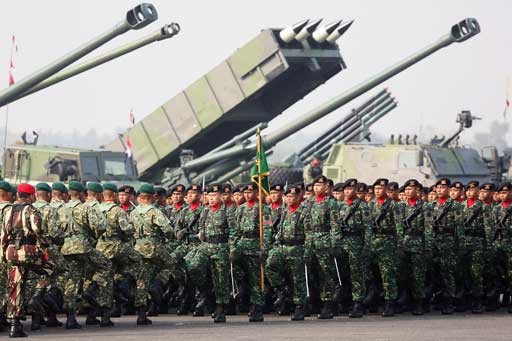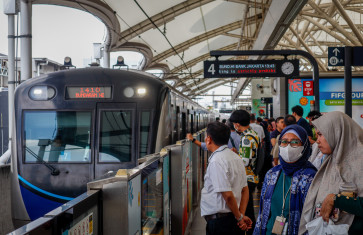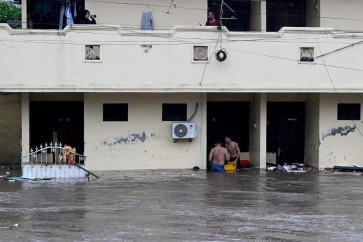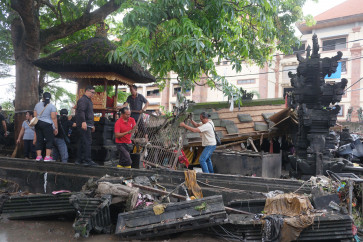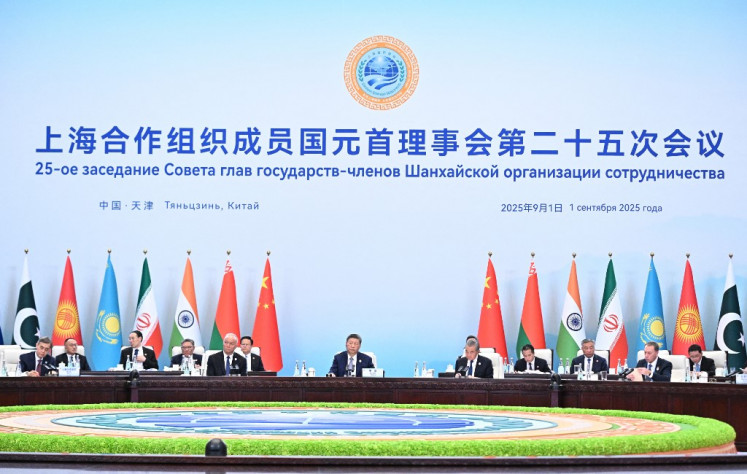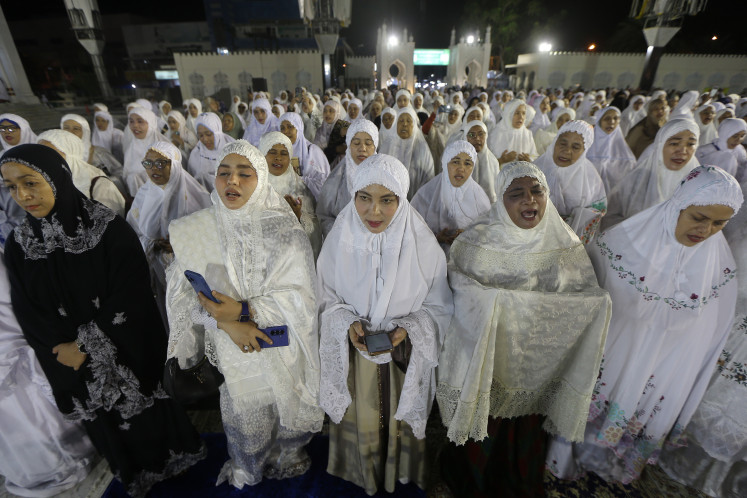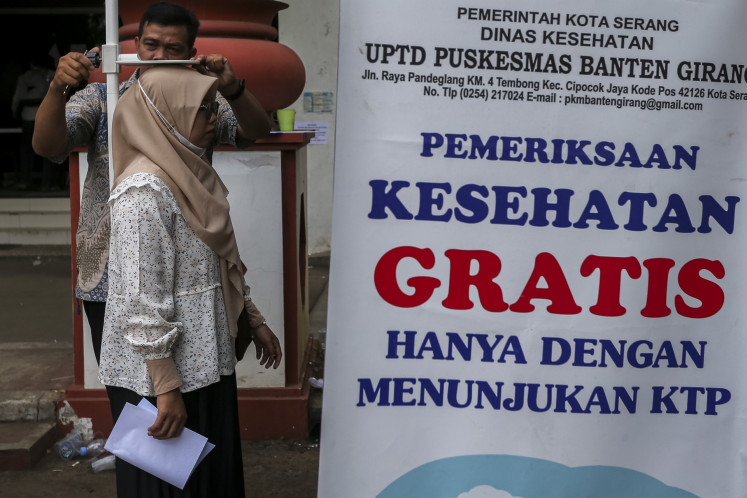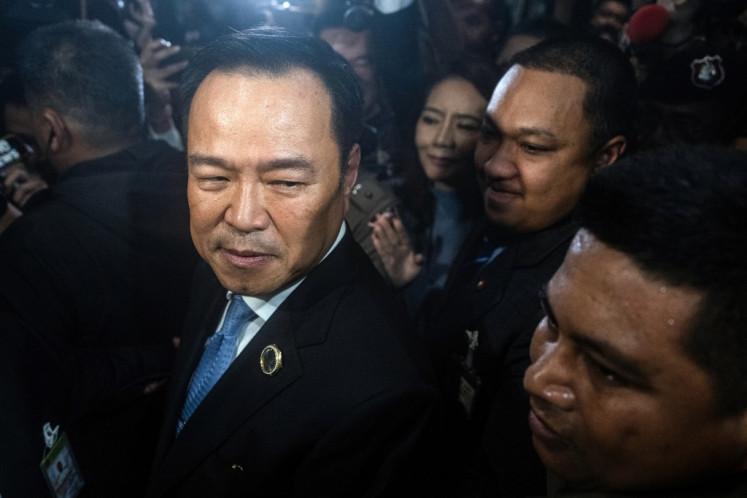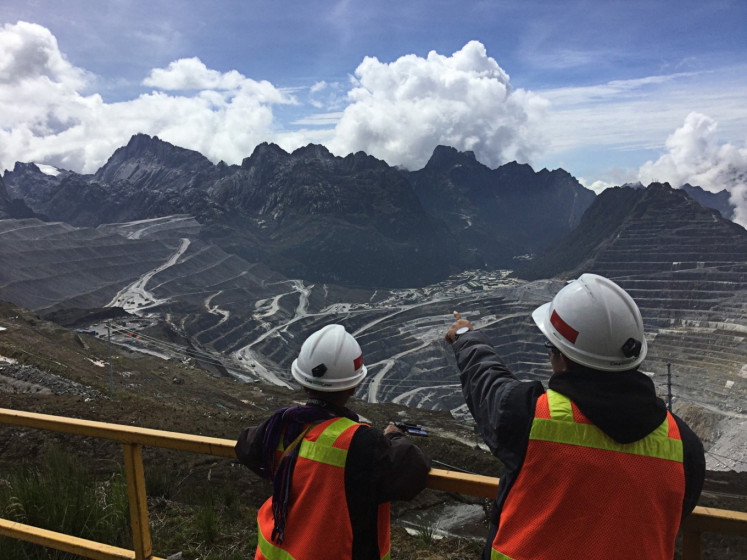Popular Reads
Top Results
Can't find what you're looking for?
View all search resultsPopular Reads
Top Results
Can't find what you're looking for?
View all search resultsGlobsec 2016 and military incapacity
It was strongly implied at the Globsec event that the millennial paradox could only be solved by collective defense on the part of NATO countries and their allies.
Change text size
Gift Premium Articles
to Anyone
T
his year, for the first time in history, Indonesia took part in the Global Security Forum ( Globsec ), held in Bratislava from April 15-17. Discussions revolved mainly about present challenges and threats relating to the economy, energy, terrorism, radicalism, cyberspace, the Islamic State ( IS ), a wave of migration from the Middle East as well as the issue of how Europe positions itself and how it will stand with its allies in the face of threats referred to as the ‘’millennial paradox’’.
It was strongly implied at the Globsec event that the millennial paradox could only be solved by collective defense on the part of NATO countries and their allies.
Those who joined the collective defense mechanism have agreed to refer to the group as the “coalition of the willing” ( COTW ), making anyone outside the group the “coalition of the non-willing” ( COTNW ). Indonesia, with its foreign policy firmly rooted in non-alignment, is automatically included in the COTNW.
To achieve its objectives, the COTW countries strive to continuously cultivate value systems that unite them as “Western” nations and to confront countries and ideologies outside the “West” or countries considered to have “defected”, such as Russia through its policy on Crimea and Syria. Second, the COTW strives to strengthen its economic power with increasing growth and through the use and sale of weapons in parts of the world considered unsafe.
War and conflict will surely continue in the future, since it is unlikely the arms manufacturers of COTW countries would be willing to cease production.
On the other hand, the COTNW group, including Indonesia, has the task of reinventing its value system and strengthening its weapons industry by keeping up with the latest technology.
The COTW group strongly believes that all of the threats, especially IS, cybercrime, terrorism and radicalism, are its ”frontline of war”, so that all of the challenges and responsibilities should be divided between the COTW countries in a “collective program” blueprint.
The question is what kind of body in the world could run this collective program in a fair manner and at whose command, and what about the imbalance in countries’ military capacity?
Given the impact of COTW countries’ assurances in the frontline war, any crisis or meltdown considered harmful to the COTW group can become a threat to the independence and sovereignty of COTNW countries.
The COTW’s grand design for collective security can be seen in recent regulations concerning peacekeeping operations ( PKO ), where it is emphasized that democratic and sovereign states no longer need armed forces as the backbone of their stability and security; because to achieve the necessary civil order, the police is deemed sufficient to cover all ‘’security action’’ required. Therefore, in the event of an insurmountable security threat that turns into a meltdown or humanitarian crisis, only the armed forces of the COTW will be considered capable and entitled to tackle the crisis through peacekeeping operations.
The implications of this policy on Indonesia as a COTNW country are that the Indonesian Military ( TNI ) is directly or indirectly forced to swallow the theory of the “non-existence” of its tasks, roles and functions. Hence, in the event of a meltdown or crisis, the solution can be handed over to or seized by COTW countries that already have policies, systems, doctrines, but also the power to act as the ‘’world police’’.
This is clearly visible from the “Transitional Authority” addition to the doctrine explained in the Core Pre-deployment Training Materials for UN peacekeeping operations. “Transitional Authority” can be exercised in peacekeeping operations by joint COTW states, whereby the PKO will be considered the legitimate government in countries experiencing a major meltdown or humanitarian crisis and would assume legislative and administrative control.
This would apply up until the creation of new conditions in the crisis country, be it through a reduction in territorial sovereignty or the establishment of appropriate administrative structures in accordance with what is desired by the COTW countries supporting the PKO.
In the Asia-Pacific region, an agreement formed in the COTW also allows the countries to operate with or without consent from the troubled country. For example, the agreement on the Regional Assistance Mission to Solomon Islands, which consists of six countries in the Pacific Island Forum under the leadership of Australia, can justify its action as an element of policing the region, including Southeast Asia, if something is considered a threat to the security of the Pacific forum and the region.
Replacing the concept of “peacekeepers” in maintaining world peace with “peace makers” seriously conflicts with our 1945 Constitution on the right to independence and sovereignty of Indonesia and the people of the nation as an inherent right to be respected, which implies non-intervention by other nations.
It seems that Globsec 2016 has sent a very clear message that the only option left for Indonesia as a COTNW country is to swiftly strengthen its military in a bid to independently maintain its sovereignty and national unity.
Indonesia, speed up to face the threats and challenges of the millennial paradox!
***
The writer is president of the Indonesian Institute for Maritime Studies. She and Indonesian Ambassador to Slovakia Djumantoro P. Purbo represented Indonesia at the Global Security Forum 2016 in Bratislava from April 15-17.
---------------
We are looking for information, opinions, and in-depth analysis from experts or scholars in a variety of fields. We choose articles based on facts or opinions about general news, as well as quality analysis and commentary about Indonesia or international events. Send your piece to community@jakpost.com.

